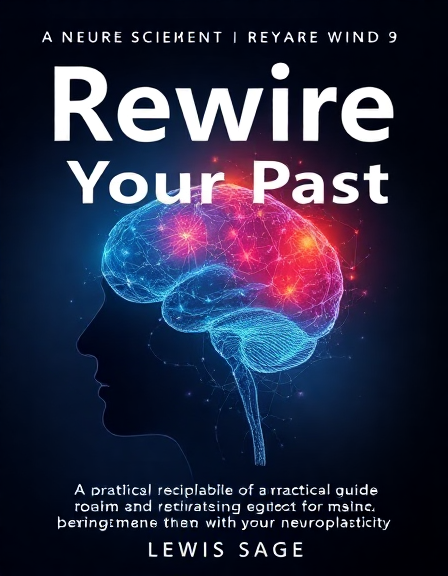Rewire Your Past: A Practical Guide to Healing and Moving Forward with Neuroplasticity
3 reviews
Chapters
6
Language
English
Genre
Published
September 29, 2025
Synopsis
In "Rewiring the Wounded Mind: Harnessing Neuroplasticity to Reclaim Your Life from Trauma," author Lewis Sage, a Master's-prepared RN with over 20 years in healthcare—from ERs to psych units—draws on his expertise in psychology, neuroscience, and neurobiology to offer a compassionate guide for trauma survivors. Dedicated to those bearing invisible scars, this 350-page e-book emphasizes honoring traumatic experiences without minimizing them, while empowering readers to take control through brain science. The foreword sets the tone: Trauma reshapes lives, but the brain's adaptability—via neuroplasticity—provides hope. Sage shares frontline stories of war veterans, abuse survivors, and accident victims, affirming that healing isn't about erasure but rewriting one's relationship with the past using reframing and Pavlovian techniques. Structured for accessibility, each chapter includes key points, practical exercises, and citations: Chapter 1 (The Shadow of Trauma) explores trauma's physiological grip—amygdala hyperactivity, vagus nerve disruption, symptoms like flashbacks—and stresses self-compassion as the starting point. Chapter 2 (The Brain's Secret Weapon) demystifies neuroplasticity, introducing the "Neuroplastic Narrative" framework and therapies like EMDR to rewire fear circuits. Chapter 3 (Reframing Without Forgetting) teaches CBT-based reframing to shift perspectives, integrating pain into resilience narratives. Chapter 4 (Pavlov's Dogs and Your Triggers) applies classical conditioning via exposure therapy to neutralize triggers safely. Chapter 5 (Reimagining the Unimaginable) guides visualization and guided imagery to rewrite narratives with agency. Chapter 6 (Daily Practices) offers routines like mindfulness, yoga, and somatic exercises to build resilience, with customizable toolkits. Chapter 7 (Real Stories, Real Healing) presents anonymized case studies of veterans and survivors using these methods. Chapter 8 (Sustaining Your Progress) focuses on long-term strategies, self-care, and trauma-informed living.
Reviews Summary
4.7
Rating Breakdown
3 total ratings
More Books by the Author
Create Your Own Book
Inspired by what you've read? Turn your ideas into reality with FastRead's AI-powered book creation tool.
Start Writing Now
